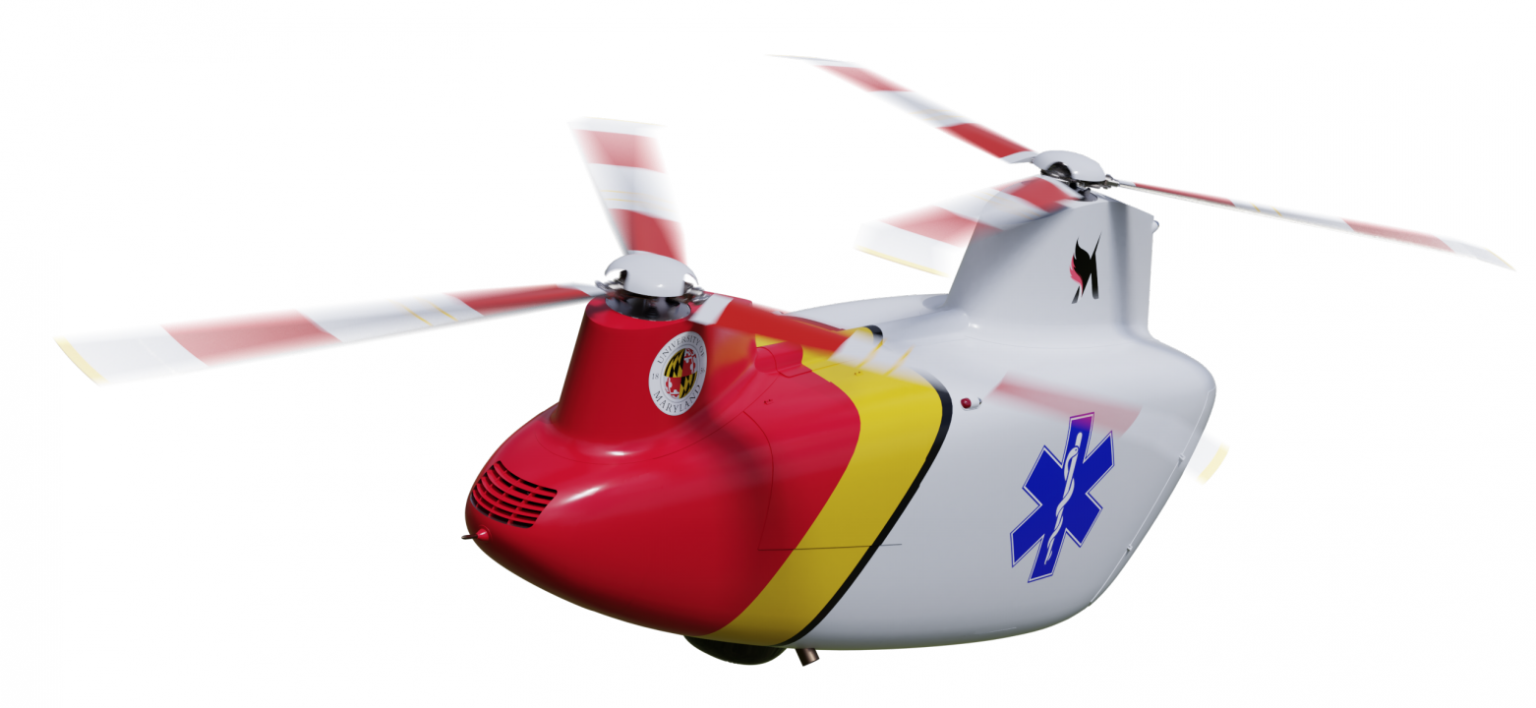University of Maryland takes top honours in Vertical Flight Society’s 38th Student Design Competition for VTOL aircraft
Students from the University of Maryland have won both the Graduate and Undergraduate categories of the Vertical Flight Society’s 38th Student Design Competition, which challenged teams to build an VTOL aircraft for medical equipment distribution.
Ten proposals from four different countries submitted entries for this year’s contest, which was sponsored by The Boeing Co. with a total of $12,500 in prize money. Altair also sponsored the optional bonus structural weight-optimisation task, with an additional $2,000 in prize money.
Teams were asked to develop an unmanned vertical lift concept that could deliver, at high speed, up to 50 kg (110 lb) payloads to end-user customer sites up to a 50 km (31 mile) radius, and to logistics centres up to 200 km (124 miles) away.
The sizing was such so that the vehicle could make a difference within a future pandemic or natural disaster. Proposal submissions required only 2020-year technologies in order to support an initial entry into service in 2025.
In the graduate category, the University of Maryland’s winning entry was named after the unicorn’s horn, an alicorn, which is thought to possess magical healing powers and fight contagious diseases. The aircraft is a tandem rotor autonomous unmanned air vehicle, designed to provide relief in pandemics and natural disasters by delivering essential medical supplies at speeds of 324 hm/h (175 kts)
Finishing behind the University of Maryland in the graduate category was the University of Melbourne.
It was a similar story in the undergraduate category, with students from the University of Maryland taking first prize as well as the Structural Weight Optimisation Task.
It designed Garra, which was named after the Garra Rufa fish, also known as the doctor fish. Garra is a fully autonomous, thrust-compounding single-main-rotor helicopter capable of delivering packages at high speeds and within the specified mission envelope.
The design has the ability to achieve speeds at a zero-degree shaft tilt of 150 km/h (135 kt), keeping the package from any adverse attitudes during all stages of flight, a key feature of the design. The design also provides package deployment versatility and redundant safety measures to ensure mission and vehicle integrity.
Garra is powered by a twin four-cylinder, two-cycle engine combination, providing 74 kW (99 hp) of available power throughout the missions. A power surplus provides the design with incredible versatility and manoeuvrability. The vehicle is also designed to complete two of the mission profiles even in the event of one engine inoperative.
Pennsylvania State University finished second, with the Royal Melbourne Institute of Technology in third. The University of Kansas was awarded Best New Undergraduate Entrant honours.
Two members of each of the first-place winning teams are invited to the 78th Annual Forum & Technology Display — planned for May 10–12, 2021 in Fort Worth, Texas — to present the details of their designs.
Executive summaries for the top-winning entries from this year’s student design competition are available at , along with past winners.
Each year, the VFS competition challenges students to design a vertical takeoff and landing (VTOL) aircraft that meets specified requirements, providing a practical exercise for engineering students at colleges and universities to promote student interest in VTOL engineering and technology.
As announced last week, Requests for Proposals are now being accepted for the 2021–2022 Student Design Competition, which is challenging students to design an eVTOL aircraft that accommodates passengers with a broad spectrum of mobility difficulties or other disabilities for urban air mobility missions.




